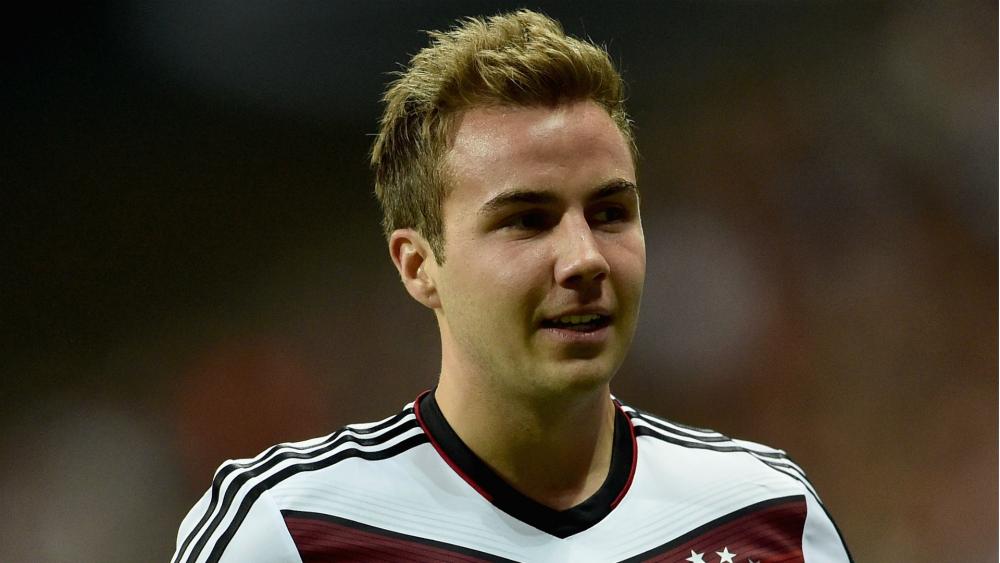Manchester United: What made Roy Keane so unique
The unknown teenager Brian Clough called ‘Irishman’ was something special, a fearless and unforgiving leader who epitomised a glorious era at the Theatre of Dreams
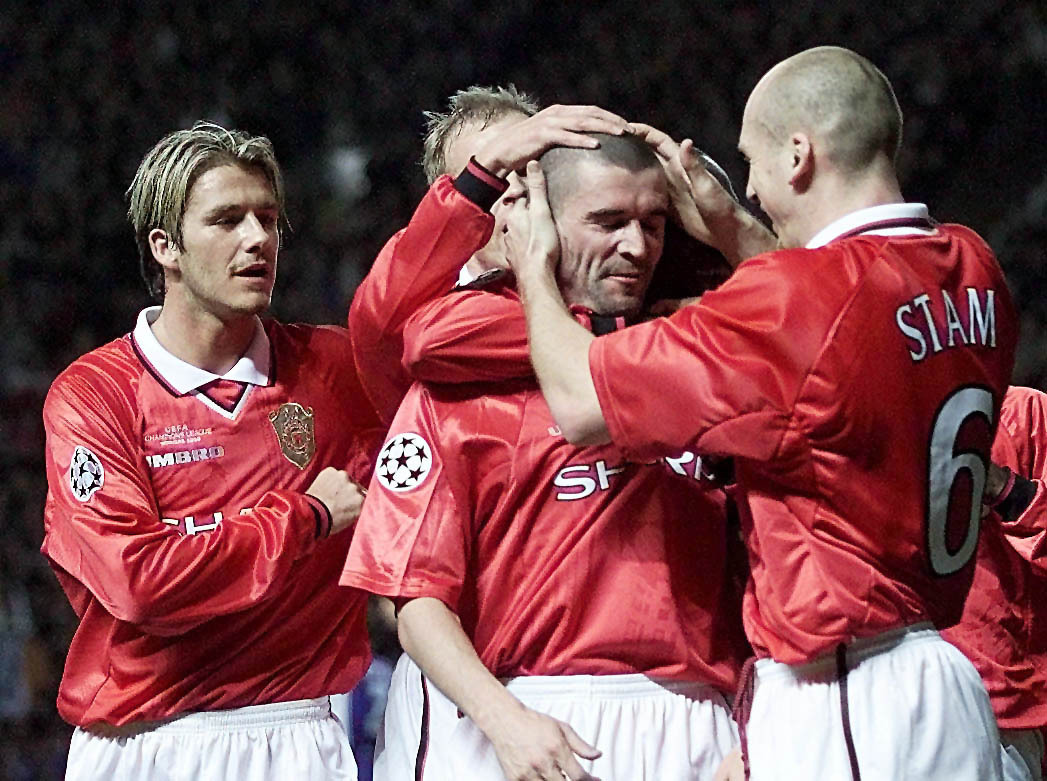
“Roy Keane is the best player that I’ve ever played with,” Denis Irwin, fellow Corkonian, Republic of Ireland international and Manchester United stalwart, admits to FourFourTwo. “My two favourite players who I played with were Robbo [Bryan Robson] and Roy. They were really similar, but I had a lot of time with Roy for United and Ireland. I saw him develop from being a box-to-box player to a holding midfielder.
THE FULL LIST 100 greatest footballers in England's top flight since 1992
“Our midfield in 1999 complemented each other. Scholesy was a magnificent footballer, partly because whenever he played alongside Roy it was the perfect partnership. Wide of them were Giggsy and Becks, but the driving force was always Roy.”
Keane made 480 outings for United, putting him 12th in their all-time appearance chart, above George Best. Before that, the Irishman turned out 154 times for Nottingham Forest, scoring a surprisingly high 33 goals in three seasons at the City Ground. It was more than enough to show why Blackburn and United were prepared to smash the British transfer record to sign him in 1993.
Keane was a latecomer to the professional game, and an unknown teenager when he travelled across the Irish Sea to Nottingham in the summer of 1990.
“When he signed, I didn’t really know him,” Forest captain Stuart Pearce explains to FFT. “I was injured, and he ended up playing at Anfield against Liverpool [in Forest’s second league game of the 1990-91 season]. I came in the next day and said to the physio, ‘How was the game? Who played on the right side of midfield?’ I was talking about Liverpool, expecting him to say Ray Houghton, but he said Roy Keane. I said, ‘Who? I’ve never heard of him’. He said, ‘No, he was playing for us’.”
Keane, freshly signed from Cobh Ramblers in a deal worth up to £47,000, had awoken on the morning of the Liverpool game upset not to have started for Forest’s reserves at Rotherham. He had spent most of the game sat on the bench and played only 10 minutes.
Get FourFourTwo Newsletter
The best features, fun and footballing quizzes, straight to your inbox every week.
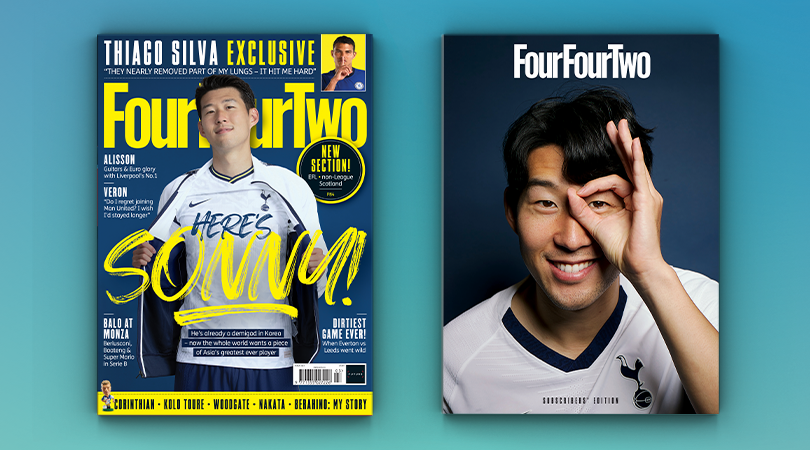
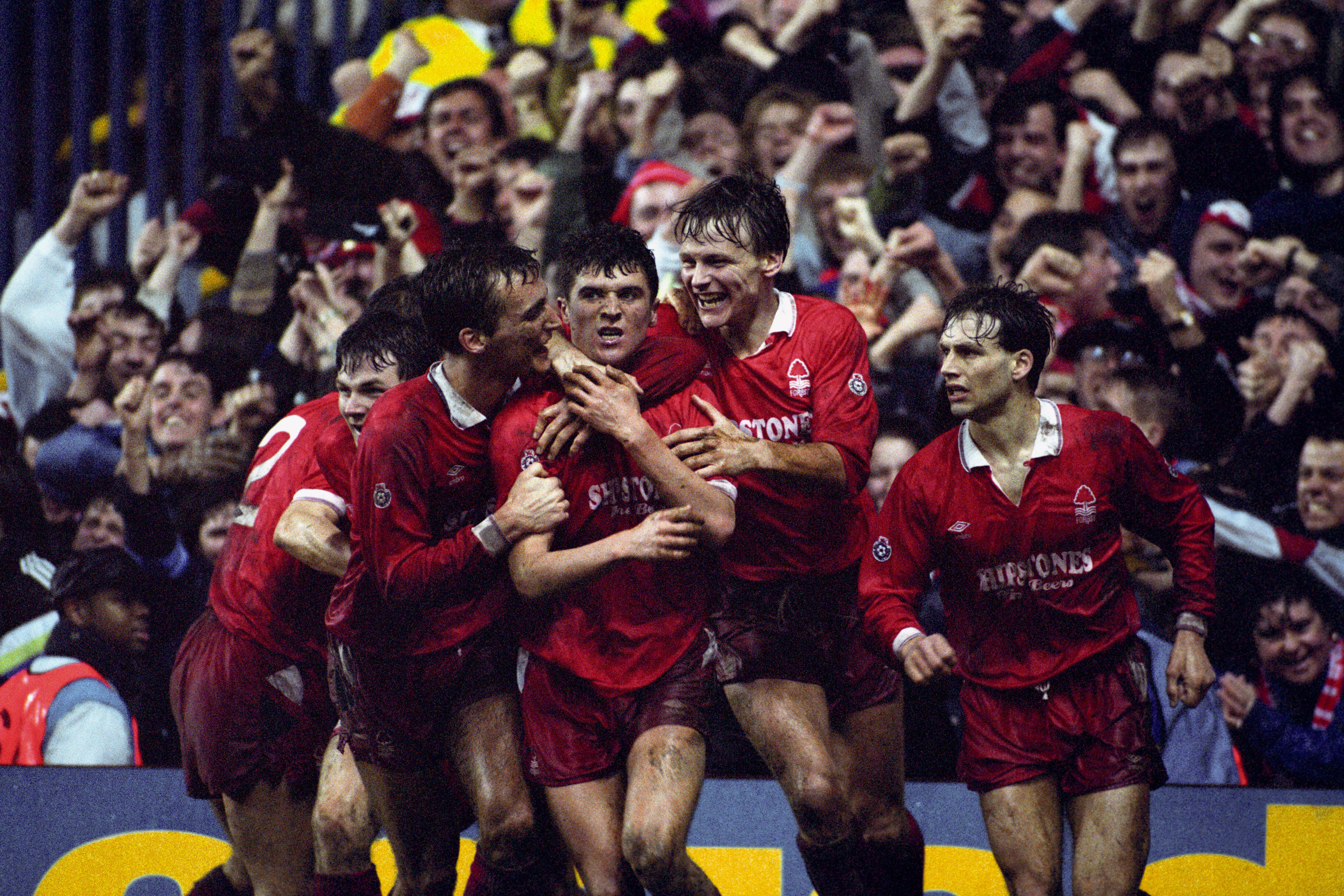
As he wondered why, Keane was called to Anfield in a car. There he was joined by boss Brian Clough, who handed him a pint of milk and said, “Here, Irishman, get this down you.” Keane hated milk. He drank the lot.
On Merseyside, he tried to help the kitman, thinking he was just going for the experience. Except he wasn’t: Keane was starting against the First Division champions, wearing No.7. His Forest team-mates didn’t even know his name, merely ‘Irishman’.
In Keane’s own words, he played “OK”. But when you consider that he said he had done “all right” after his greatest ever performance for United in Turin, “OK” was just fine.
Clough summoned him to his office a day later. He asked him to clean his shoes and for his name. “Roy,” he replied. Their relationship would be unconventional but productive.
“When I walked into the dressing room after the game, Clough punched me straight in the face,” recalled Keane, after an underhit backpass meant Forest’s FA Cup third round tie with Crystal Palace was going to a second replay. “I was hurt and shocked – too shocked to do anything in response but nod my head in agreement. My honeymoon with Clough and professional football was over.”
Yet Clough respected his best player deeply. In another match, after admonishing his entire squad by accusing them of being lazy and complacent, he turned towards Keane and said, “I love you, Irishman.”
“Brian loved good players – managers tend to!” Pearce tells FFT. “Roy came over and had an instant impact – he was in the first team before you could believe it and he drove us. He helped get the team to the FA Cup final in 1991 and had a fantastic impact at the club. By the time he left for Man United, he was our standout player, without a doubt. He played in midfield, he played in defence – wherever he played he was outstanding.
“Roy always had a very strong personality – obviously he was 18 and I was 28 [at the start], so we were a decade apart, but you always knew that he had an edge to him. He backed his ability on and off the pitch. He’d have his say, even as a young man. We had a couple of years together – very successful years, as well.
“It was just the variation of positions that he’d play and still be the best player on the pitch. Cloughie dropped him into the backline and he was the best centre-half at the club. He could do a multitude of things and went on to become one of the greatest players the Premier League has ever seen.”
Keane was actually heading to Ewood Park before United got involved, though: the Red Devils dispatched their ticket office manager to Manchester Airport, to pick up Keane in a battered old Ford Orion. A contact let the Irishman out of a back gate at the airport to avoid the press, and the midfielder looked for a double headlight flash.
“I met Brian Kidd and Alex Ferguson, played a game of snooker with them and had the usual small talk – they told me how brilliant I was and I believed them,” revealed Keane. A British record £3.75m transfer was agreed, outraging Blackburn manager Kenny Dalglish.
“I told Kenny that I was going to Cyprus on holiday with a few mates, and when I came back I was going to sign for United,” added Keane. “He replied, ‘I’m going to find you’. At every bar in Ayia Napa, I looked over my shoulder expecting to see Kenny Dalglish.”
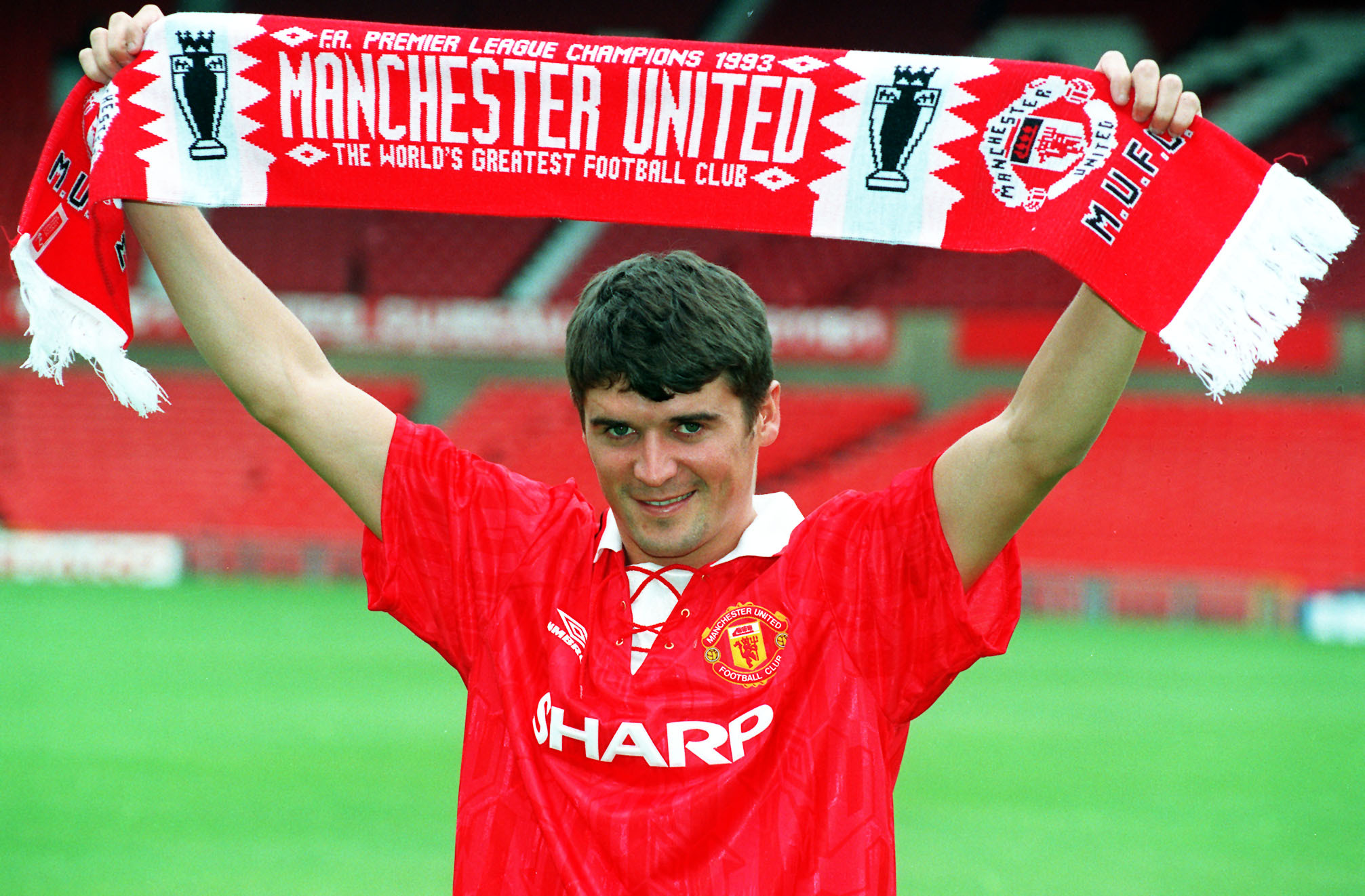
In his first campaign for champions United, Keane showed why he was the replacement for the player he’s so often compared with: Bryan Robson. He was key as United won the league and FA Cup Double for the first time in 1993-94, playing 54 games in all.
“I saw myself as a goalscoring midfielder, working box-to-box, tackling, closing people down and grafting to win the ball back,” was Keane’s self-assessment of his first season at Old Trafford. “Offensively, I think I was at my most effective running onto the ball to finish moves, like the one which produced the winner at Maine Road [a 3-2 victory over Manchester City in 1993]. This left Paul Ince or Bryan Robson to drop deep and receive the ball from the back four, which I wasn’t confident enough to do. But Robson insisted that it was something I had to do. Trust your own ability was the message.”
His manager trusted him. Keane won seven Premier League titles at United, four FA Cups, the Champions League and Intercontinental Cup. He became their most important player after Eric Cantona retired in 1997 – the year Keane was handed the captaincy, by which time he had all but given up drinking alcohol.
That summer, media duties were added to his responsibilities. Keane gave fascinating interviews – and he could get straight to the point. On the 1997 pre-season tour to Hong Kong, this writer was at the press conference. I’d interviewed him several times on the tour and didn’t ask him anything that day. Keane saw me later and wasn’t impressed.
“Why didn’t you ask any questions?”
“Erm...”
“What’s the point of you coming if you don’t ask any questions? I’m there for you to ask me questions.”
I was in a Manchester bar with friends in the ’90s when Keane entered. He came over and said hello, which was nice, but there was a sting in his presence. “You’re not following me are you?” he asked, a verbal jab which led to a defensive, “I was here already.” He just winked and went on his way.
Keane’s relationship with Ferguson was – and remains – trying. “Two bulls in the same pen,” was Andy Cole’s view of a pair he still gets on very well with. Ferguson and Keane don’t see eye-to-eye after an acrimonious 2005 exit from United. Keane feels he gave everything for his manager and played even when he was injured. Ferguson believes he was the boss and needed to discipline his midfielder like any other player.
“His Irish fire was fundamental to his value as a footballer, but his tendency to go beyond the bounds of acceptability would have to be curbed,” said Ferguson of the 1995 Keane – but he was crucial to his team. When Keane missed much of the 1997-98 season due to a knee injury, United failed to retain the title, win a cup and went backwards in Europe by losing to Monaco. When he returned, he was integral to United’s Treble-winning success, making 55 appearances in all competitions. No outfielder featured more.
“I didn’t think I could have a higher opinion of any footballer than I had of the Irishman, but he rose even further in my estimation at the Stadio delle Alpi,” beamed Ferguson after Keane’s greatest United performance, when he helped them come from 2-0 down to beat Juventus 3-2 in the Champions League semis. A yellow card in Turin meant he had to miss the 1999 final against Bayern Munich. Again: Keane felt he had done “all right”.
Unlike a number of old team-mates, Keane challenged, and regularly disagreed with, his master’s voice. He even criticised United fans for a poor atmosphere at Old Trafford during a Champions League game against Dynamo Kiev in 2000. He was arguably absolutely right to do so – adding ‘prawn sandwiches’ to the football menu – and defended his right to be honest, compared to the bland, safe, plaudits given by other players.
“Some footballers nowadays are like robots when they speak to the press, because they have people working for them, and PR and all that," said Keane. "They want to know what questions they're going to be asked and all that crap. Ultimately, my comments were for there team. A week later, the atmosphere was different class."
It was Keane’s team-mates who incurred such wrath on a daily basis.
“All the time, especially those who think it’ll be easy for them,” he insisted. “I do it in every game and training session. I can be a pretty critical guy, critical of myself and especially of the young lads who I can see have talent. Maybe sometimes I’m harsh, and I’ve left the training field feeling like I’ve been a bit out of order, particularly with the younger players. But if I wasn’t trying to make a point, I’d feel like I was cheating them. If something needs to be said, then I’ll say it.
“I think I have positive stuff I can pass onto the players from my own experiences. All I ask is that they are focused on what they are trying to do – that’s part of my job.
I’m not the only one who does it. Gary [Neville] does it. Giggsy does it.”
That attitude was not without a price. “It has cost me certain friendships over the years with players, and some can be standoffifish with me for United or Ireland,” he revealed. “It’s just part of my make-up and, in the long run, I think that’s a positive thing. It’s a short career and you have to be focused on what you do. The last thing I would want to think when I retire is that I hadn’t been focused at a certain point in my career. To me, that’s the biggest crime.”
Irwin was a close friend. “Roy will contest this, but he wasn’t the best footballer in the world – he left that to Scholesy,” he tells FFT. “He was a combative player who could smell danger, read situations and tell where the ball was dropping. He was defensive-minded but could also break forward. He was a huge driving force in training and in being Manchester United.”
Keane is now an outspoken pundit. His brutal honesty is a virtue, yet that may go against him in his hopes of managing a top club again. He found success at Sunderland, winning the Championship in 2006-07, but then failed with Ipswich.
Either way, he often has a point – although there’s not one person in Manchester United history who divides opinion so much. Keane is an Old Trafford legend, and his stock in the city, where he has mostly lived since moving to England, is high.
But there’s more than one side to him. In 2018, Keane led a group of ex-United players to organise a 40,000 sell-out match for Liam Miller, his fellow Corkonian who had tragically passed away from cancer.
“Liam was a very good player who played for United, Celtic and his country,” said Keane. “A really nice guy, a quiet guy, very humble. But don’t get me wrong, he was very strong. You don’t get to the top in any sport unless you’ve got good confidence behind you and a lot of determination. Liam was no angel, but he knew how to play the game and he was a good guy.”
He could have been talking about himself.
While you're here, subscribe to FourFourTwo today and save 37%. All the exclusive interviews, long reads, quizzes and more but with more than a third-off normal price.
NOW READ
ANDY MITTEN Manchester United’s trip to Rio for the Club World Cup, 21 years on
NIKE TOTAL 90 Every version of the boot through the years
GUIDE Premier League live stream best VPN: how to watch every game from anywhere in the world

Andy Mitten is Editor at Large of FourFourTwo, interviewing the likes of Lionel Messi, Eric Cantona, Sir Alex Ferguson and Diego Maradona for the magazine. He also founded and is editor of United We Stand, the Manchester United fanzine, and contributes to a number of publications, including GQ, the BBC and The Athletic.
